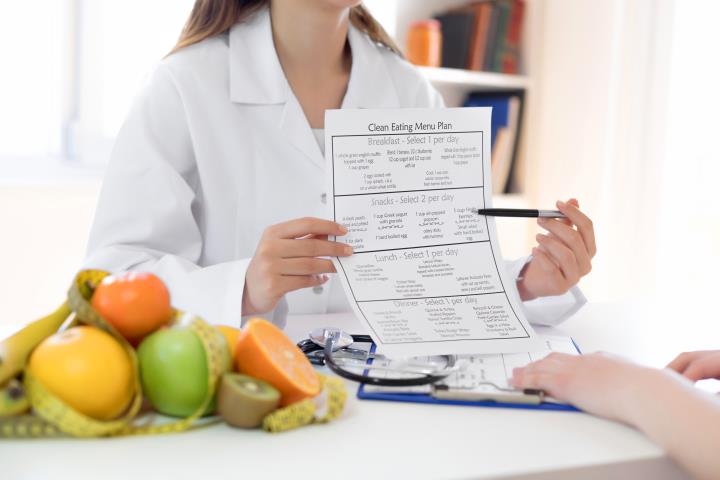Aug 07, 2024

But while TikTok influencers are masters at creating catchy content, most are not nutrition experts. Dr. Zhaoping Li, Director of the UCLA Center for Human Nutrition says getting diet advice from viral online trends may not yield your desired results. And in some cases, misinformation on social media can even be dangerous.
“Nutrition advice needs to be scientifically based and should come from those who have been formally trained in the field. The foods we eat play an important role in disease prevention and treatment, so it should be considered medicine.”
Steer clear of unverified diet advice that recommends extreme measures such as fasting or cleanses, eating only certain foods, or claims that wacky food combinations will magically melt away pounds.
Instead, seek out scientifically sound diet advice from a clinical nutritionist or other medical professional. They’ll be able to guide you away from ineffective trends and toward proven approaches to healthy eating.
“Most of what ‘influencers’ post on the internet should be considered entertainment, not medical advice,” says Dr. Li. “Only people with educational credentials can give nutrition advice, so check multiple resources and ask your doctor or a registered dietitian.”
Look before you lock: Prevent hot car emergencies
Every year, tragic headlines remind us that hot car deaths can happen to anyone. According to The National Highway Traffic Safety Administration about 40 children a year die from heatstroke after being left or stuck in a hot car. When a child remains in a vehicle without ample ventilation, that child's body temperature can rise quickly. Heatstroke begins when the core body temperature reaches about 104 F.
Parents and caregivers that experience hot car tragedies often report a change in routine or a distraction that led to their child accidentally being left in the car.
Here are three essential tips to ensure the safety of children during hot weather:
1. Put an essential item in the backseat
Leave your purse, wallet or another item in the back seat so you are forced to go in the back to retrieve it. This is an added security measure to check the back seat and ensure the car seat is empty.
2. Leave a visual reminder
Keep a stuffed animal in your child’s car seat when it is not in use. Anytime you travel with your child, move the stuffed animal to the front seat to remind yourself that your child is back there.
3. Keep your car doors locked
Unfortunately, some hot car deaths occur when children “play” in or around car doors and get stuck inside. Eliminate this risk by always locking your car doors. Teach your children that cars are not places to play and show them how to honk the horn and/or unlock the doors if they are ever stuck in a vehicle.
If you ever see a child left alone in a vehicle, especially during the summer, act fast to quickly remove them from the hot vehicle. If the car is locked, break the window. Call emergency services immediately.
Enhance Academic Performance with Healthy Eyes
Many variables affect students' academic performance, but one thing that is often overlooked is eyesight. Academic performance is directly linked to the ability to see clearly, as vision affects reading, writing, comprehension, and classroom participation.
Experts at Clarendon Vision Development Center of Illinois say that a substantial part of a child's education is acquired through visual processing. When that vision is impaired, it can hinder the ability to learn and absorb information effectively. That’s why it's important for your child to have routine eye exams.
Infants often get their first comprehensive eye exams around zero to six months of age. By age three, children should have a second eye exam. Around age five or six, children should receive a third comprehensive eye exam, just before entering school. Eye exams should then be scheduled at least every two years. These guidelines can be adjusted if any vision problems are detected, and more frequent exams are needed.
Surprising Ways Peaches Can Boost Your Health
August is National Peach Month, and who doesn’t love fresh peaches! Peaches are typically viewed as a sweet treat, particularly in summertime. But peaches also provide a host of health benefits, which can make anyone who enjoys a peach-based sweet treat feel a little better about their indulgence.
Peaches are rich in vitamins and minerals, including potassium. The American Heart Association notes that potassium plays an important role in the management of high blood pressure.
Peaches also do not contain any saturated fats, making them a good low-calorie snacking option that can help people maintain a healthy weight. A single large peach contains just 68 calories.
Peaches are rich in free radical-fighting vitamin C. That could explain their link to reducing cancer risk, as free radicals are unstable atoms that often contribute to cell damage that is a hallmark of cancer. In addition, MedicineNet reports that peaches are high in polyphenols, which studies have found prevent the formation and spread of cancer cells in lab tests.








